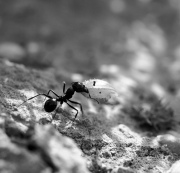Tags
biology, codon, DNA, evolution, Genetics, language, Popular science, redundancy, science, translation
One of the striking things about the genetic code is the remarkable way it twists back on itself, combining redundancy and utility in a simple, elegant language. Many of us are introduced to the basic concept in school, but that introduction often leaves out the wrinkles — some of them newly discovered — which give the system its resilience and precision. Despite their complexity, most of these tricks are pretty easy to explain with linguistic analogies, which is precisely what I’m going to try in this post. Continue reading


You must be logged in to post a comment.